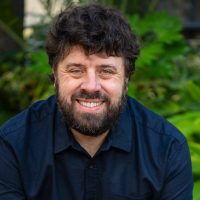Articles / ‘We will never control the virus with vaccines alone’: Virologist

0 hours
These are activities that expand general practice knowledge, skills and attitudes, related to your scope of practice.
0 hours
These are activities that require reflection on feedback about your work.
0 hours
These are activities that use your work data to ensure quality results.
These are activities that expand general practice knowledge, skills and attitudes, related to your scope of practice.
These are activities that require reflection on feedback about your work.
These are activities that use your work data to ensure quality results.
“Vaccines have been important. They definitely save lives. But I think we’re at the end of the road with vaccines for the moment unless there’s a tremendous shift in either the virus or vaccine technology,” said Dr Grohmann, who is an independent consultant on influenza primarily to the WHO and a director of the Immunisation Coalition.
“We will never control this pandemic with vaccines alone. We’ve got Australians with two, three or four vaccines and we have thousands of cases per day and hundreds of people die every week. So, it’s pretty clear that vaccines are not the whole answer,” he said.
Speaking ahead of his ‘COVID Update’ presentation at Healthed’s upcoming webcast, Dr Grohmann said we can’t vaccinate our way out of a pandemic.
COVID vaccines are 70-90% effective at preventing hospitalisation and death. “COVID vaccines did stop a lot of people from dying,” he said. “They did save lives and millions of lives.”
“But people don’t want to be taking a vaccine again, and again, and again,” said Dr Grohmann.
“I think children with underlying disease should get the COVID vaccine, but not normal, healthy children because there’s no burden of disease,” he said, commenting on the TGA’s recent decision to approve the Moderna COVID vaccine for children aged between six months and five years.
Repeating injections every few months forever is not how we normally use vaccines, and there’s no long-term safety data on this approach in adults or children, he said.
mRNA COVID vaccines (Pfizer and Moderna) and the DNA vaccines (Astra Zeneca) were shown to be safe in clinical trials involving tens of thousands of people, but they have not been studied for as long as the protein vaccines (Novavax), he said.
That doesn’t mean vaccines were not a useful and safe tool to use during the pandemic, despite how anti-vaxxers may respond to such comments, he said.
“Now, the anti-vaxxers will take any little snippet of anything that anybody says and blow it up to support their argument, but this is simply bias,” he said.
“They think they know everything. And they don’t. Scientists would be the first to admit that we don’t know everything, but we’re moving in the right direction. Lives have been saved, vaccines have been made, they are getting better.”
Australia was acting like a “rabbit caught in the headlights” when it came to preparing the community to deal with future COVID waves, said Dr Grohmann.
“We should be doing more to promote mask wearing and we should consider creating a CDC to prepare for the next pandemic,” he said.
There have been “tremendous” and positive changes towards covid testing, working from home, using telehealth, and using antiviral drugs, but more is needed, he said.
“If we could just inculcate a little bit of education into common courtesy, then I think people would be happy to wear masks in unventilated or crowded situations,” he said.
“Walking around in the corridors and standing in queues that are absolutely packed, we’d be mad not to wear a mask.”
Last year’s restrictions produced a dramatic drop in respiratory conditions, and that should be what Australia is aiming for permanently (without the long, disruptive lockdowns), he said.
“We didn’t just see COVID drop, influenza basically disappeared. We saw pertussis disappear. We saw all these respiratory viruses almost go to zero,” he said.
“I think we need to change our whole attitude to public health education,” he said.
“We do have to accept the virus at the end of the day. But we don’t have to accept the virus on the terms where it can just simply do what it wants willy nilly,” he said.
“We still need some restrictions in place, particularly for vulnerable people.”
Register for Healthed’s upcoming free webcast, which will contain Dr Grohmann’s presentation and other important topics, here.
Register for the next Healthed webcast
Managing Paediatric Anxiety in General Practice

OSA – Which Test for Which Patient

Musculoskeletal Health in Menopause

AHPRA-Proof Your Practice – Social Media Risks for GPs




Strongly agree
Somewhat agree
Neutral
Somewhat disagree
strongly disagree
Listen to expert interviews.
Click to open in a new tab
Browse the latest articles from Healthed.
Once you confirm you’ve read this article you can complete a Patient Case Review to earn 0.5 hours CPD in the Reviewing Performance (RP) category.
Select ‘Confirm & learn‘ when you have read this article in its entirety and you will be taken to begin your Patient Case Review.
Menopause and MHT
Multiple sclerosis vs antibody disease
Using SGLT2 to reduce cardiovascular death in T2D
Peripheral arterial disease
